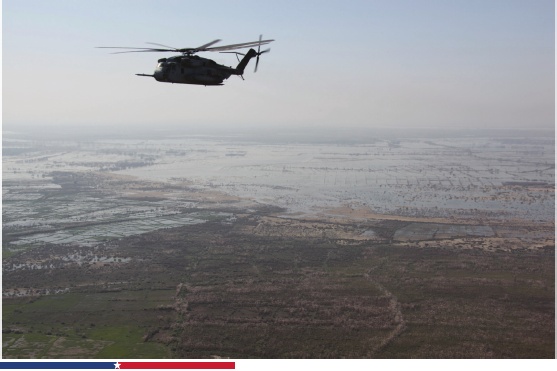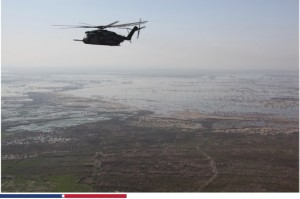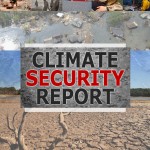
New Intelligence Community Report – Climate Change is Threat to National Security
Posted with help from ASP intern Danielle Parillo

On March 12 2013, the Director of National Intelligence, James Clapper presented the Intelligence Community’s “Worldwide Threat Assessment” to Congress. This report focuses on the many threats to the United States’ national security. The report presents the assessment of the full intelligence community.
One of the most notable sections is how climate change is affecting our food, water, and energy resources. The report also suggests that terrorist elements may use weaknesses brought on by climate change such as weak governments, civil disobedience, and riots for their benefit to recruit and train potential candidates, saying “Criminal or terrorist elements can exploit any of these [climate-induced] weaknesses to conduct illicit activity and/or recruitment and training.” All of these factors in turn greatly affect the United States’ national security.
Due to rising temperatures, increased floods, droughts, and natural disasters, agriculture has suffered and could continue to be negatively affected in the future. This limits the availability of resources essential to agriculture: water, fertilizer, land, and fuel oil. These resources are either becoming increasingly scarce or more costly. With changes in agriculture comes a change in food supply which in turn affects global food prices. The report argues that food insecurity is a threat, saying:
“Growing food insecurity in weakly governed countries could lead to political violence and provide opportunities for existing insurgent groups to capitalize on poor conditions, exploit international food aid, and discredit governments for their inability to address basic needs.”
Water scarcity in regions vital to the United States are also threatened due to climate change. The report list threats to energy and food production in states such as India, where water resources from monsoon season connect directly to the livelihood of over a billion individuals. States with poor management mechanisms and limited financial resources may become increasingly unstable with decreased access adequate water. The report suggests that these states will be further negatively affected because lack of water supply will decrease economic output, saying:
“Economic output will suffer if countries do not have sufficient clean water to generate electrical power or to maintain and expand manufacturing and resource extraction which could affect trade relations with the U.S.”
Not only is food and water insecurity a threat to U.S. national security, oil prices are also a problem. In a previous paper, ASP highlighted the correlation between oil prices and the global market and how regardless of U.S. is oil independence, prices remain controlled by the global market. This will continue to be true especially as political instability in the Middle East is ongoing.
The United States has greatly invested into regions that are being threatened by rising temperatures, increased floods, droughts, and natural disasters caused by climate change. If climate change is allowed to continue, the security landscape the United States faces in the coming years may be a far darker one than the NIC Report suggests.
Check out our report into Climate Change and Nation Security below:







[…] further analysis of the document, see Andrew Holland and Danielle Parillo’s blog at the American Security […]
[…] The Intelligence Community released a new report to Congress, in which it states that climate change presents clear threats to national security. […]
[…] New Intelligence Community Report – Climate Change is Threat to National Security […]